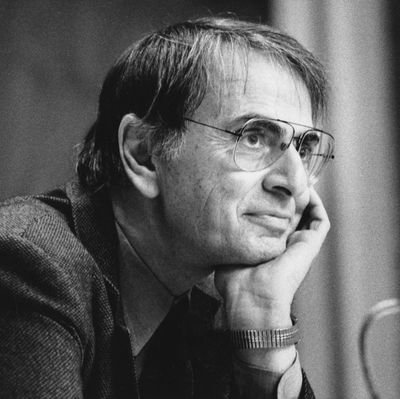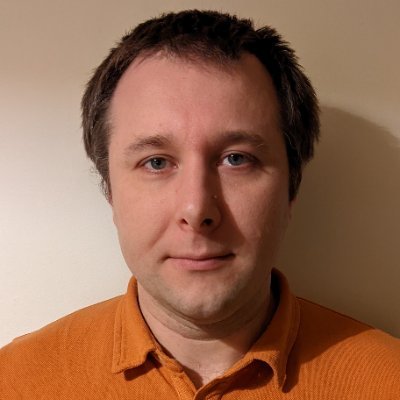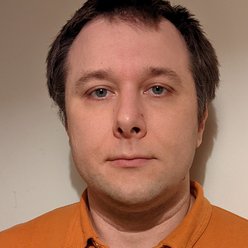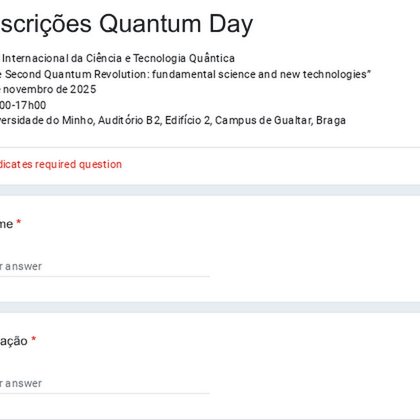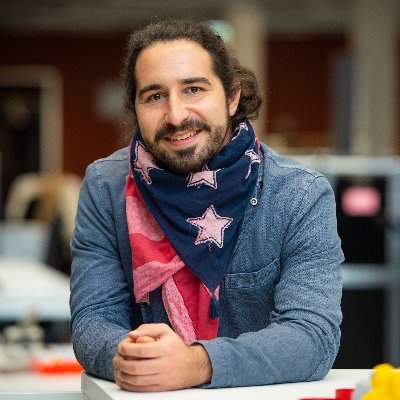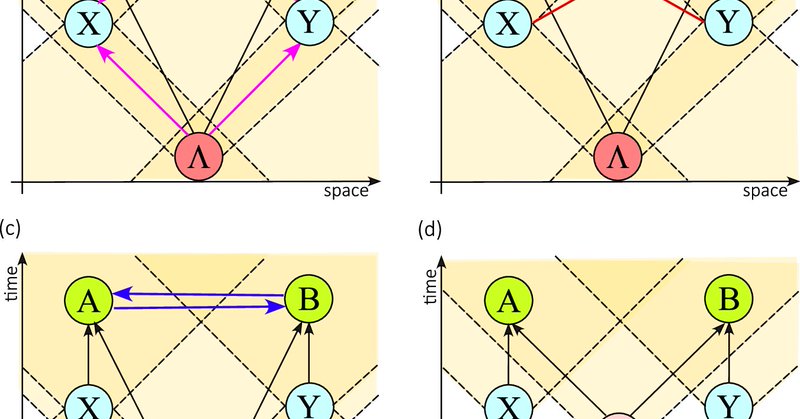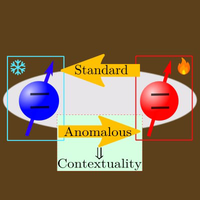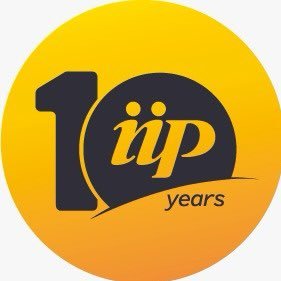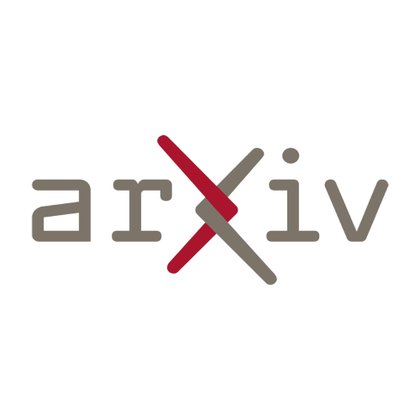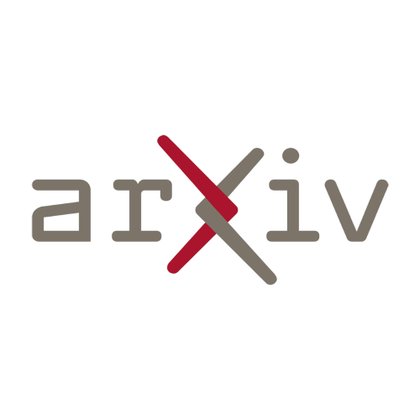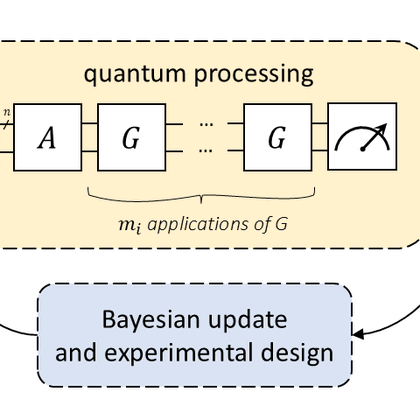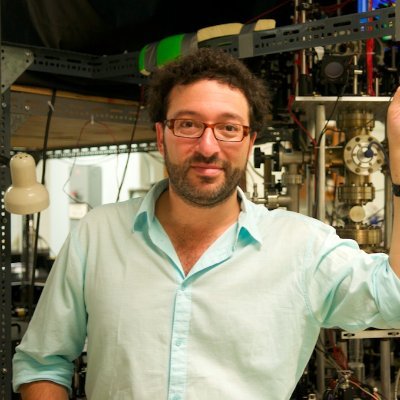
Ernesto Galvão
@efgalvao
Followers
990
Following
5K
Media
69
Statuses
3K
Quantum information science researcher at International Iberian Nanotech Lab (Portugal) and professor at Inst. Física, UFF (Brazil). Also on Bluesky.
Joined March 2010
The real problem of humanity is the following: We have Paleolithic emotions, medieval institutions, and godlike technology. - Edward O. Wilson
70
910
3K
We are hiring PhD students and postdocs to join our Quantum group @CompSciOxford! Our research spans Classical Simulation of quantum systems, Quantum Complexity and Learning Theory, Quantum Algorithms, and applications in bioinformatics Learn more 👇 🔗
cs.ox.ac.uk
Sergii Strelchuk at the Department of Computer Science
0
1
2
Thank you Wagner, Quinn, Jake and Alex for this collaboration, 5 years in the making!
New @QLOC_INL preprint! Wagner Balthazar, @efgalvao and colleagues from Bristol describe a Feynman path technique for simulation of boson sampling - including open-source code. @phoqusing @INLnano
0
0
1
Rafael Wagner is the newest PhD in the group! 5 papers reported in the thesis, 14 others (and counting) on related topics. Congrats Rafael, please keep up the enthusiasm and good work! It was a pleasure to co-supervise your project together with Rui and Mikhail.
0
0
5
The Univ. of Minho will celebrate the International Year of Quantum Science and Technology with a meeting on Nov. 3rd. Specialists discussing the theme include Filipa Peres and Rafael Wagner, graduates from our group. Register for free:
docs.google.com
Ano Internacional da Ciência e Tecnologia Quântica “The Second Quantum Revolution: fundamental science and new technologies” 3 de novembro de 2025 10h00-17h00 Universidade do Minho, Auditório B2,...
1
1
2
(I/III) We're excited to announce a new tenure track opening! The position is called 'quantum informatics' and is affiliated with our QUICK group within the CS+AI division at Johannes Kepler University Linz 🇦🇹. Application deadline is November 30th, 2025: https://t.co/zwL7jzOD7Y
2
6
17
Thank you Leonardo, Sagar, and João for this collaboration!
And this paper on the characterization of which complex values unitary invariants can take has been published in PRA! Congrats to the authors. @INLnano
0
0
0
In a recently published paper in Nature Communications, FoQaCiA PI Adán Cabello and collaborators investigate how complex Bell nonlocality tests can constrain the possible causal explanations, with consequences for superdeterminism (AKA "free will").
nature.com
Nature Communications - Loophole-free violations of Bell inequalities imply that at least one of the assumptions formalising local hidden-variable theories must fail. Here, the authors show that,...
1
1
1
In a new PRX Quantum paper, Rafael Wagner and colleagues from Brazil describe the role of generalized contextuality in anomalous heat flow — situations where quantum correlations enable heat flow from a colder to a hotter system without external work.
journals.aps.org
For a class of quantum systems that exhibit contextuality, a rigorous theoretical connection between anomalous heat flow and quantumness is established, thereby opening avenues to explore nonclassi...
0
2
3
Qual é a tarefa mais simples em que um computador quântico supera um clássico? 🤔🖥️ Em nosso último seminário, discutimos a evolução dessa área com o Prof. Daniel Brod (UFF). 📲Assista agora: https://t.co/y8sFmQxJkC
0
1
1
New preprint out! By @efgalvao and collaborators from UFF in Brazil. They measure overlaps of classical states of a light beam featuring fractional OAM states. They use overlap inequalities to witness dimension and coherence in this classical setting.
arxiv.org
We characterize sets of fractional orbital angular momentum (OAM) modes of a light beam using unitary-invariant properties encoded by two-mode overlaps. Using basis-independent coherence and...
0
1
1
New @QLOC_INL preprint! Rafael Wagner and collaborators from Gdansk and Waterloo extend the framework of generalized probabilistic theories to describe general complex-valued quasiprobability representations. Congrats!
arxiv.org
Quasiprobability representations are well-established tools in quantum information science, with applications ranging from the classical simulability of quantum computation to quantum process...
0
1
3
New QLOC group paper published by Alexandra Ramôa and Luís Paulo Santos. They develop a new algorithm for amplitude estimation, with advantage in noisy scenarios, and accompanying open-source software. Congrats!
quantum-journal.org
Alexandra Ramôa and Luis Paulo Santos, Quantum 9, 1856 (2025). We present BAE, a problem-tailored and noise-aware Bayesian algorithm for quantum amplitude estimation. In a fault tolerant scenario,...
0
1
1
New @QLOC_INL paper out! Leonardo Novo (INL) and Michael Jabbour (Brussels) look at the complexity of CV states in linear-optical devices, describing how it increases when nonlinear gates are introduced. Congrats! @phoqusing
0
1
3
New @QLOC_INL paper out! Rafael Wagner and collaborators show that a Wigner's friend argument can be made having contextuality rather than nonlocality at its core, extending our understanding of the measurement problem. Congrats Rafael!
journals.aps.org
Extended Wigner's friend no-go theorems provide a modern lens for investigating the measurement problem, by making precise the challenges that arise when one attempts to model agents as dynamical...
0
1
3
@QLOC_INL members presented their research this week at the IX Paraty Quantum Information Workshop in Brazil. Sara Franco (pictured), Wagner Balthazar, Pedro Azado, and @efgalvao presented talks and posters. Sea, sun, and quantum! https://t.co/xeI7bewTcy
0
1
6
Nominate the most innovative work on Fundamental Issues in Quantum Mechanics and their Applications for the 2026 John Stewart Bell Prize! (Pls retweet!) See https://t.co/nZF7dzXsWl Deadline 30 August 2025. @CQIQC_Toronto #QuantumInformation #FoundationsOfQM #BellPrize
0
17
21
Nice work by Pedro Azado (IFSC-USP, INL), Rafael Wagner (Minho, Ulm, INL), with supervision by me and @ruisb. Quantum switches are useful to measure unitary invariants, bringing applications for these processes featuring indefinite causal order.
New @QLOC_INL preprint! We show processes featuring indefinite causal order (switches) can be used to measure and use unitary invariants for applications. Congrats Pedro Azado, Rafael Wagner, @ruisb and @efgalvao! @foqacia_org @INLnano
0
0
2
New @QLOC_INL paper out! We use a tunable interferometer to do variationally learn near-optimal quantum cloning machines. Collaboration with @FabioSciarrino's group, @fastgroup_ifn, Mina Doosti, Sebastià Nicolau.
0
3
7
